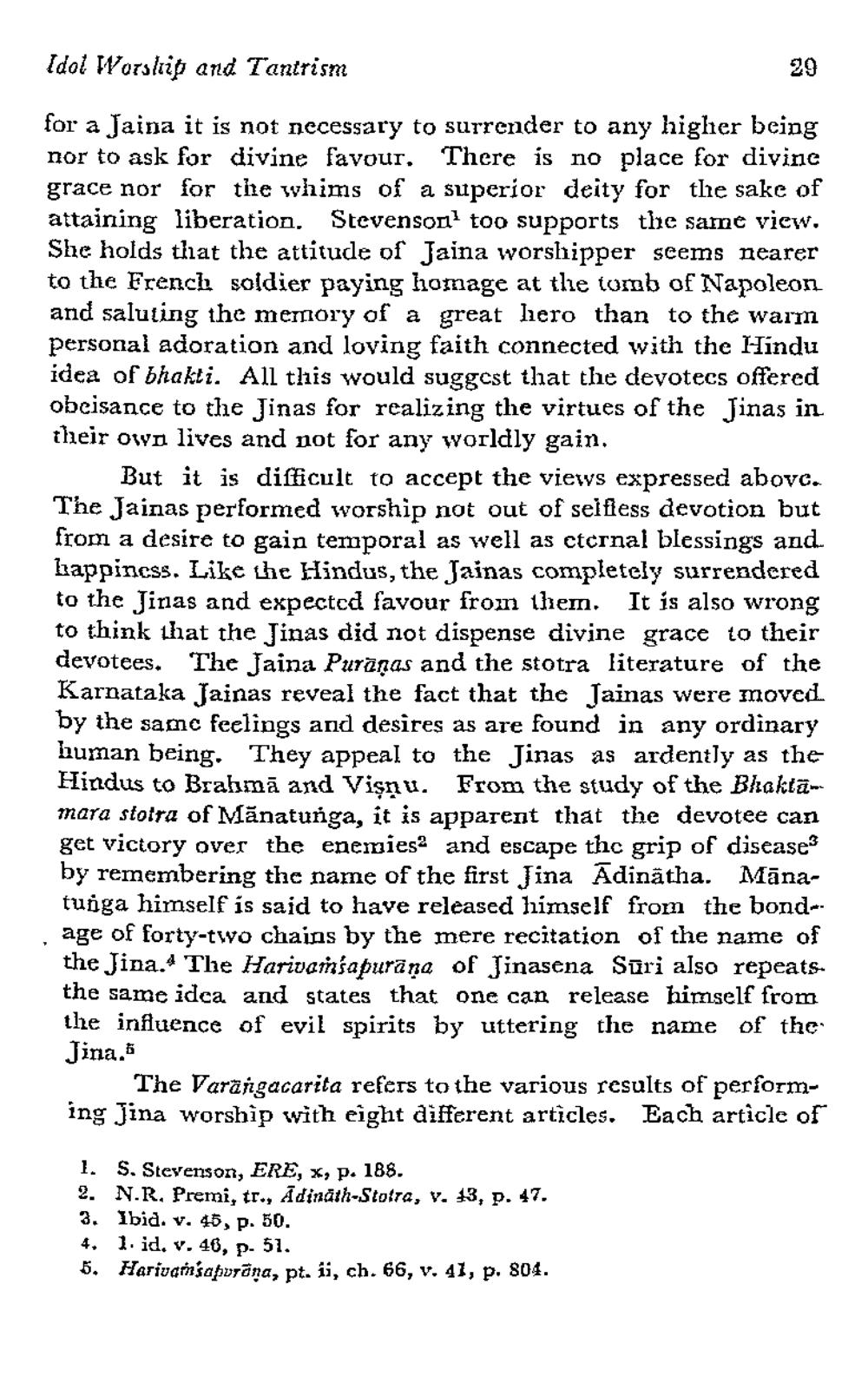________________
Idol Worship and Tantrism
29
for a Jaina it is not necessary to surrender to any higher being nor to ask for divine favour. There is no place for divine grace nor for the whims of a superior deity for the sake of attaining liberation, Stevenson too supports the same view. She holds that the attitude of Jaina worshipper seems nearer to the French soldier paying homage at the tomb of Napoleon and saluting the memory of a great liero than to the warm personal adoration and loving faith connected with the Hindu idea of bhakti. All this would suggest that the devotecs offered obeisance to the Jinas for realizing the virtues of the Jinas in their own lives and not for any worldly gain.
But it is difficult to accept the views expressed above. The Jainas performed worship not out of selfless devotion but from a desire to gain temporal as well as cternal blessings and. happiness. Like the Hindus, the Jainas completely surrendered to the Jinas and expected favour froin them. It is also wrong to think that the Jinas did not dispense divine grace to their devotees. The Jaina Puranas and the stotra literature of the Karnataka Jainas reveal the fact that the Jainas were moved by the samc feelings and desires as are found in any ordinary human being. They appeal to the Jinas as ardently as the Hindus to Brahma and Vişnu. From the study of the Blaktam mara stotra of Mănatunga, it is apparent that the devotee can get victory over the enemies and escape thc grip of diseases by remembering the name of the first Jina Adinātha. Mānatunga himself is said to have released himself from the bondage of forty-two chains by the mere recitation of the name of the Jina." The Haritamsapurana of Jinasena Sūri also repeatsthe same idea and states that one can release himself from the influence of evil spirits by uttering the name of the Jina.
The Varangacarita refers to the various results of performing Jina worship with eight different articles. Each article of
1. S. Stevenson, ERE, X, p. 188. 2. N.R. Premi, tr., Ādināth-Stotra, v. 13, p. 47. 3. Ibid. v. 45, p. 50. 4. 1. id. v. 46, p. 51. 5. Harivansaprāna, pt. ii, ch. 66, v. 41, p. 804.




